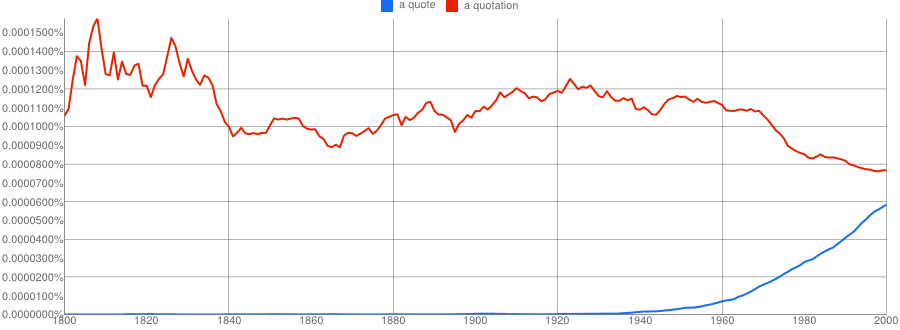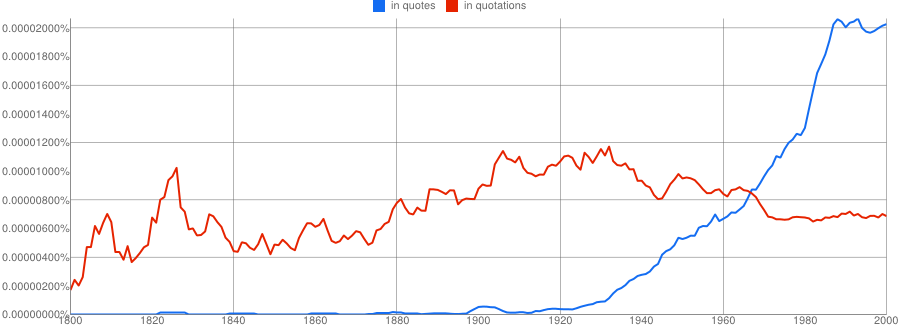I did a search for "a quote" vs "a quotation": http://books.google.com/ngrams/graph?content=a+quote%2Ca+quotation&year_start=1800&year_end=2000&corpus=17&smoothing=3

and "in quotes" vs "in quotations": http://books.google.com/ngrams/graph?content=in+quotes%2Cin+quotations&year_start=1800&year_end=2000&corpus=17&smoothing=3"in quotes" vs "in quotations":

These should be guaranteed nouns. The first search would include price quotes, but I think the second one is less likely to. As you can see, the shorter form has been gaining in preference over the last century, with increasing momentum, except in the case of "in quotes" it plateaued starting in the 90s. If you compare to the British corpus you can see that it is more of an American trend.
Should I just "go with the flow" and adapt to the change? (If I do not, I have a feeling I'll remain in the company of a very small minority and be considered a nitpicker by the majority!)
Yes. Well, according to these ngrams (not sure how much you can really derive from them), you will still be fully understood and perhaps even in the majority in some contexts, for now, if you use the longer form. But there is no sense getting annoyed by other people speaking differently. Languages change.
Did Ngram do what I expected it to do, treating as nouns both quotes and quotations?
No. It doesn't do any advanced reasoning for you, it just searches for the words you type.
